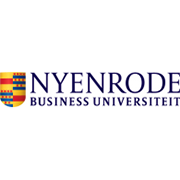Multiple studies show that nature is inadequately protected in many places across the world. It seems that the largest challenge of the 21st Century is to reconsider our role and position of human beings as part of nature. New research conducted by Nyenrode Business University explores innovative ways to improve the situation.
In public or private decisions regarding land conversion or another use of nature, nature itself is currently not represented as a stakeholder in the discussion. Hence, people in governments, companies and other institutions decide what happens with a river, a lake, a forest, a mountain, etc. In particular, they determine to what extent a certain part of nature can be used for human benefit and/or polluted or abolished. Nature itself has no say in those types of decisions. There are many international treaties and national laws aimed at protecting nature areas and vulnerable species. However, the current situation reveals that those have not been effective. Economic interest usually wins from ecological interest.
According to Professor of Corporate Law at Nyenrode Business University, Dr. Tineke Lambooy, granting legal rights or legal personhood to ecosystems may offer a solution.
“This could change how we think about nature. If we create a situation in which nature can take decisions in its own interest, we could see nature as having intrinsic value. We could acknowledge that nature can co-exist with us on our planet. That would constitute a systemic change in our thinking concerning ourselves and nature.”
Granting legal personhood to ecosystems would imply that we see nature as a legal subject instead of as legal object. According to Lambooy “a trend is emerging; ecosystems in different countries on all continents have been granted rights in recent years, or proposals have been launched to that end. Our research focuses on the possibilities of granting rights to the Dutch part of the Wadden Sea. This natural area has been valued high for its biodiversity, among other because of the millions of migratory birds that visit the area every year. The Wadden Sea is a unique tidal area, which has been designated as a UNESCO World Heritage Area. Hence, we should attempt to treat it as a heritage site and look after it for future generations. Besides, the results of the research might also be useful for other ecosystems in the Netherlands, such as the Biesbosch,” says Lambooy.
This research looks at the parameters of granting legal personhood to the Wadden Sea, that is: how do we shape a ‘nature legal personhood’? A legal person requires people or an institution to represent it in society. Hence, the question of governance is relevant and needs to be considered. The review of several other cases of legal personhood – granted to for example rivers in various jurisdictions around the world – reveals that there are different ways in which the governance structure has been designed.
Lambooy has been awarded a grant of 10,000 Euros from the Dutch INNO-Fonds (fund) of the Dutch Wereld Natuur Fonds (World-Wide Fund for Nature; WWF). This contribution will be used to explore the options to introduce ‘Rights of Nature’ in the Netherlands. In this project, the researches involve experts from legal and ecological disciplines and also other stakeholders.



























